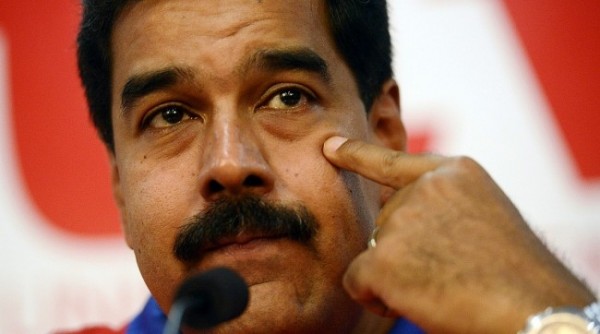Venezuela’s electoral authorities on Monday approved the first of two petitions needed to hold a referendum to depose President Nicolás Maduro, handing a modest win to opposition leaders who accuse him of presiding over an unprecedented economic collapse.
The National Election Council’s decision was far from a sure thing, as the opposition has alleged it is staffed with government supporters and the ruling party had earlier accused the opposition of submitting 10,000 signatures of dead people and has asked the Supreme Court to annul the referendum process.
The opposition alliance now faces several more hurdles before a recall vote can be approved. It must formally request permission from the electoral council, a government body known by its Spanish acronym CNE, to hold the referendum. If approved, opposition leaders would then have to collect nearly four million signatures, representing 20% of the electorate, over a three-day period chosen by electoral officials and submit the petition for approval again.
Tibisay Lucena, head of the National Election Council, told a news conference Monday that the opposition had successfully collected and validated the mandatory 1% of registered voters’ signatures. The opposition presented 1.8 million signatures to the council in May, nine times the minimum needed.
However, Ms. Lucena injected uncertainty into the process by saying that she would ask prosecutors to investigate over 1,000 signatures that didn’t match the voters’ fingerprints. It was unclear if that would jeopardize the validity of the overall recall process.
After the ruling, leaders of the Democratic Unity Roundtable alliance said they would formally submit a request to hold the referendum to Ms. Lucena on Tuesday. If approved, analysts said, the three-day signature campaign would likely take place in September. Ms. Lucena declined to give a date.
To win the recall vote, the opposition would need to obtain a majority and to exceed the 7.5 million votes gathered by Mr. Maduro in the last presidential election.
The vote’s timing could play a large role in whether Mr. Maduro’s government remains in power, and the opposition has accused the electoral council of trying to delay the vote until later next year.
If held before Jan. 10, a recall wouldn’t only remove the president but lead to new elections that polls show would result in a resounding victory by the opposition. But if a referendum is held afterward and voters choose to oust Mr. Maduro, then the vice president would in theory be able to finish the term and the socialist government could remain in power until at least 2019.
The agency took three months to count and validate the signatures in the latest petition, compared with the days it has taken in the past to sign off on signature drives initiated by the government.
Meanwhile, the government has maintained its allegations of fraud in its efforts to derail the recall vote.
“This is the biggest fraud known in the history of Venezuela,” Caracas Mayor Jorge Rodriguez, a close ally of Mr. Maduro, said before the agency’s announcement Monday. “This recall referendum is dead.”
Monday’s decision came as Polar, the country’s biggest food company, said officials had requisitioned 14 tons of products in the rural state of Apure amid crippling food shortages. Last week, the government also issued a decree that opposition leaders say may force companies to loan workers for two months for agricultural work, a move that Amnesty International said would amount to forced labor.
The opposition has said the only way to put food on the shelves is to sack Mr. Maduro and scrap state controls of a battered economy, which the International Monetary Fund says will contract by 10% this year.
“The referendum will be this year, because Venezuelans can’t take this any longer,” opposition leader Henrique Capriles said Sunday.
WSJ


Leave a Reply
You must be logged in to post a comment.